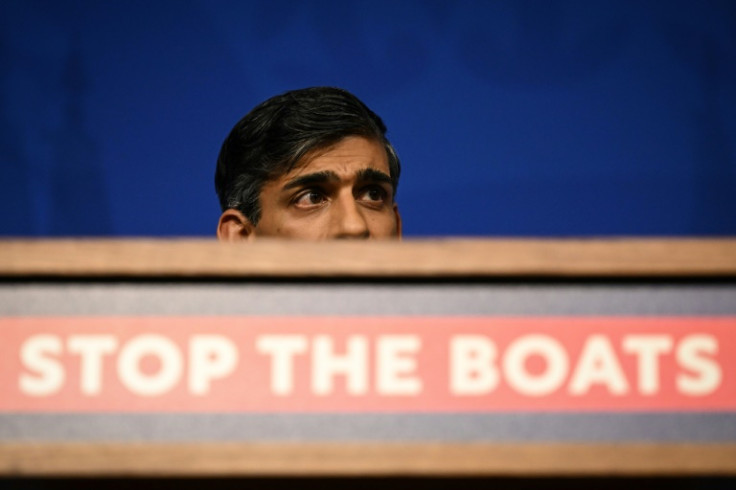Sunak Hit With Biggest Tory Rebellion Over Rwanda Plan Amendments
Sunak could face a humiliating defeat that could cost the Conservative Party its next general election win if Tory MPs continue to vote for Rwanda policy amendments.

This week, the Conservative Party has seen its biggest rebellion in years after 60 MPs called on Prime Minister Rishi Sunak to tighten his grip on the emergency Rwanda legislation and two Deputy Chairmen resigned from their posts.
The party revolt comes after the newly appointed Home Secretary James Cleverly announced that the government would continue to push for the Rwanda Treaty, despite the bill being ruled unlawful by both the Court of Appeal and the Supreme Court.
As part of the Conservative promise, and in a bid to win the next general election, Cleverly noted that the government is certain that "Rwanda is and will remain conclusively a safe country for the purposes of asylum and resettlement".
The new emergency bill has been signed by the Home Secretary and is set to be fast-tracked and implemented in the coming months.
Lee Anderson and Brendan Clarke-Smith were amongst 58 other right-wing MPs, including former Prime Minister Boris Johnson, who supported the rebel amendments to the flagship of the Rwanda policy.
The amendments were proposed to parliament by Conservative Veteran Sir Bill Cash and former Immigration Minister Robert Jenrick.
Jenrick's scheme set out to make it more difficult for those who have fled persecution to make claims against their deportation to the East African nation.
Cash's amendment intended to block asylum seekers from arguing against their forced removal to Rwanda using the European Convention on Human Rights or any other international human rights treaty.
The other potential changes to the already orthodox legislation also set out to restrict the number of asylum applications to the UK and would see all undocumented migrants who have arrived in the UK, deported to Rwanda immediately.
Due to Labour MPs and MPs belonging to other opposition parties voting against the harsh amendments, the Tory rebels were outnumbered by 529 votes against 68 in the House of Commons.
Although Sunak won an overall majority among MPs, his success came at a price.
Tory MPs have since warned that they are considering voting against the entire Rwanda legislation when it has its vital third reading in the House of Commons this week.
If some 30 of the rebels vote to carry out their threat, set on toughening up the bill, Sunak would face a humiliating defeat that could cost the Conservative Party its next general election win.
According to inside sources, Anderson and Clarke-Smith later resigned from their posts before they were fired.
Jane Stevenson, the Conservative MP for Wolverhampton, also resigned as Sunak's ministerial aide after the vote.
Speaking on behalf of the other Tory rebels, one former minister said: "I think there is a real danger that the government could lose its majority. What's the point of having a legislation that doesn't work? You might as well go back and start again."
In response to their fellow ministers who voted for Jenrick and Cash's amendments, another Conservative MP argued: "They are just not strategically very bright. They have told the country that our policy is shit, but when it comes to the third reading vote they will abstain and look stupid."
While Sunak has taken pride in his "toughest immigration law ever", after assessing the emergency Rwanda policy, the UN High Commissioner for Refugees said that the plan did not "meet the required standards relating to the legality and appropriateness of the transfer of asylum seekers and is not compatible with international refugee law".
According to Labour Leader Keir Starmer, the Labour Party is considering an alternative scheme that would allow asylum seekers to have their applications processed elsewhere.
The party have been discussing "detailed plans" for a potential offshoring scheme that will align with international human rights laws.
To keep faith in the Conservative Party, Sunak is now in a rush to implement the Rwanda bill which would save him from his largest personal crisis as Prime Minister of the UK.
© Copyright IBTimes 2025. All rights reserved.






















